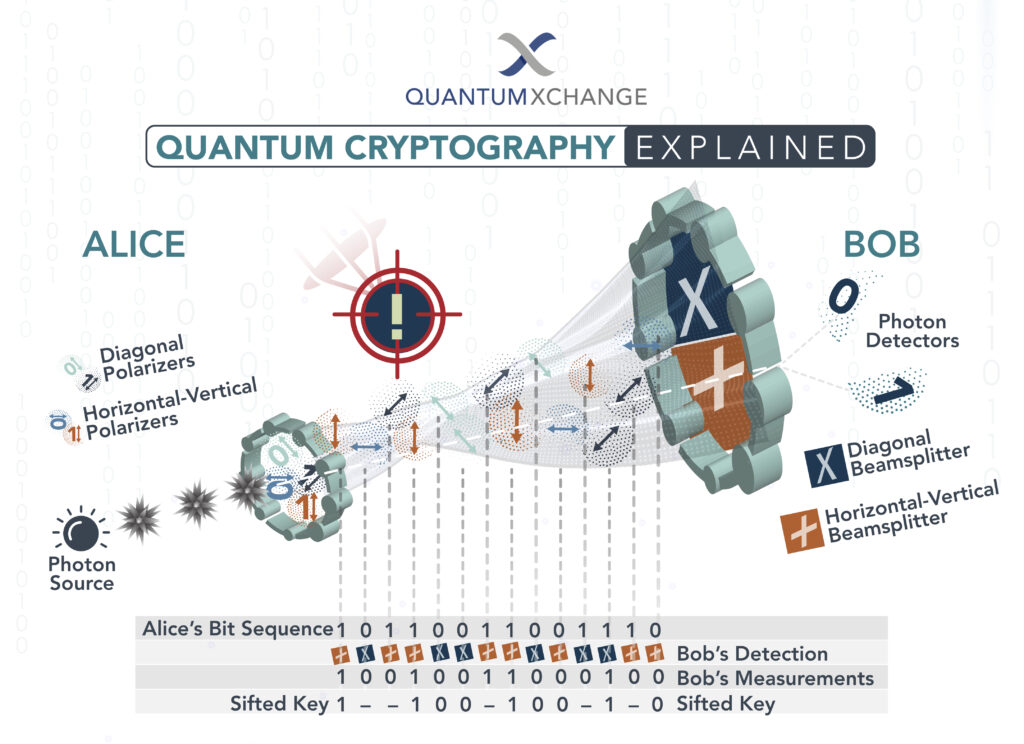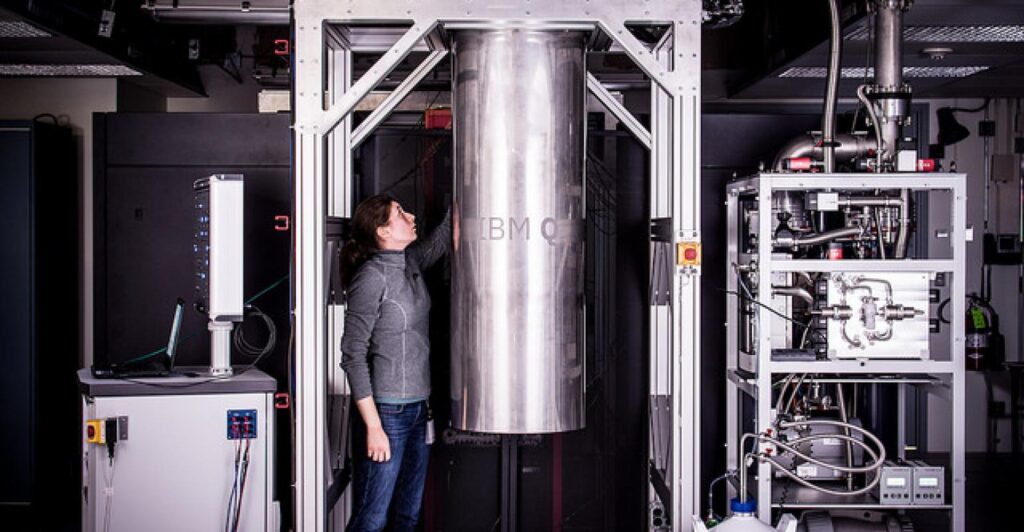Quantum computing has been making waves in the world of technology for several years now, and it’s not hard to see why. With its promise of exponentially faster computing power, it has the potential to revolutionize existing industries and pave the way for entirely new ones. But what exactly is applied quantum computing, and how does it differ from the theoretical concept that most people are familiar with?
Applied quantum computing is the practical application of quantum computing principles to solve real-world problems. It involves using the unique properties of subatomic particles to perform complex calculations, analyze data, and improve upon existing algorithms. By harnessing the power of quantum mechanics, applied quantum computing has the potential to revolutionize fields such as cryptography, finance, and drug discovery. In this article, we’ll take a closer look at what applied quantum computing is, how it works, and some of the ways it’s already being used in industry today.

What is Applied Quantum Computing?
Applied quantum computing is a field of computer science and engineering that is focused on the development, implementation, and utilization of quantum computing systems and algorithms. This field has become increasingly relevant as more organizations recognize the potential of quantum computing to revolutionize the way complex problems are solved. Applied quantum computing combines the principles of quantum mechanics with computer science and engineering to create powerful, high-performance computing systems.
Advantages of Applied Quantum Computing
Applied quantum computing offers numerous advantages over traditional computing methods. One of the most significant advantages is the potential for unprecedented computing power. Quantum computers are able to process huge amounts of data at a much faster rate than classical computers, making them invaluable for certain types of research, such as machine learning. Additionally, quantum computers are also able to solve complex problems that would take a classical computer an impractically long time to solve.
Powerful Problem Solving
Quantum computers are able to solve things like optimization problems and machine learning tasks that would be extremely difficult or impossible for classical computers. This is due to the fact that quantum computers are able to process huge amounts of data in parallel, allowing them to find solutions much faster than traditional computers. Additionally, quantum computers are also able to solve problems that require significant processing power, such as large-scale optimization problems and machine learning tasks.
Reduced Energy Consumption
Another significant advantage that applied quantum computing offers is reduced energy consumption. This is because quantum computers are able to perform computations using significantly less energy than traditional computers. This means that quantum computers are much more efficient than traditional computers, which can lead to significant cost savings for organizations that rely on high-performance systems. Additionally, reduced energy consumption also leads to a reduced environmental impact, which is an increasingly important consideration for organizations that are looking to become more sustainable.
Frequently Asked Questions about Applied Quantum Computing
Applied quantum computing is a field of study that focuses on the application of quantum computing technologies in everyday life. It is a rapidly growing area of research and development, with many exciting possibilities for the future.
What is Applied Quantum Computing?
Applied quantum computing is a field of study that focuses on the application of quantum computing technologies in everyday life. Quantum computing is a type of computing that uses the laws of quantum mechanics to solve complex problems. Quantum computing is different from traditional computing because it uses the laws of quantum mechanics, such as entanglement and superposition, to process data. This type of computing has the potential to solve certain problems that are currently too difficult or impossible to solve with traditional computing.
Applied quantum computing looks at how quantum computing can be used to solve real-world problems. It is an exciting area of research that is being explored by many different research teams around the world. Possible applications of quantum computing include machine learning, cryptography, optimization, and even medical diagnostics.
What Are the Benefits of Applied Quantum Computing?
The potential benefits of applied quantum computing are immense. Quantum computing has the potential to solve certain problems that are currently too difficult or impossible to solve with traditional computing. In addition, quantum computers can process large amounts of data quickly, making them well-suited for tasks such as machine learning and artificial intelligence. Furthermore, quantum computing can be used to create new algorithms and solve complex optimization problems.
Quantum computing is still in its early stages and it will take some time before its full potential can be realized. However, the potential of applied quantum computing is exciting, and many researchers are already exploring the possibilities.
What Are the Challenges of Applied Quantum Computing?
Applied quantum computing is still in its early stages, and there are many challenges that need to be addressed before its potential can be fully realized. Many of these challenges are related to the physical implementation of quantum computers, such as the need for high-precision components and reliable sources of quantum information. In addition, there is the challenge of developing algorithms that can take advantage of the power of quantum computing.
Furthermore, there is the challenge of developing an understanding of how to apply quantum computing to real-world problems. This requires research into the theoretical foundations of quantum computing, as well as the development of tools and techniques to make quantum computing more accessible to the wider public.
What Are Some Examples of Applied Quantum Computing?
One of the most well-known examples of applied quantum computing is the development of quantum algorithms for machine learning. Quantum algorithms can process large amounts of data quickly, making them well-suited for tasks such as facial recognition and natural language processing. Other examples of quantum computing applications include quantum cryptography, quantum optimization, and quantum teleportation.
In addition, there are many research teams around the world exploring the potential of applied quantum computing. For example, researchers at Google, IBM, Microsoft, and many other companies are developing quantum computing technologies and exploring their potential applications in the real world.
Where Can I Learn More About Applied Quantum Computing?
If you are interested in learning more about applied quantum computing, there are a number of online resources available. Many universities offer courses on quantum computing and its applications, and there are a number of online tutorials and books available. In addition, there are many online communities dedicated to discussing quantum computing, such as the Quantum Computing Stack Exchange.
Furthermore, there are a number of research papers and journals dedicated to quantum computing. These can provide an in-depth look at the latest developments in the field, as well as a comprehensive overview of the current state of quantum computing research.

In conclusion, applied quantum computing is a rapidly evolving field that has the potential to revolutionize various industries. It is an interdisciplinary field that requires knowledge of physics, computer science, and engineering. As quantum computers become more prevalent and accessible, the applications of quantum computing will continue to expand.
The potential benefits of applied quantum computing are vast, from improving drug discovery and material science to optimizing transportation and logistics. However, there are also challenges that need to be addressed, such as improving the stability and scalability of quantum systems. Despite these challenges, researchers and companies are investing heavily in the development of applied quantum computing, and it is clear that the field will continue to grow and transform many industries in the coming years.



